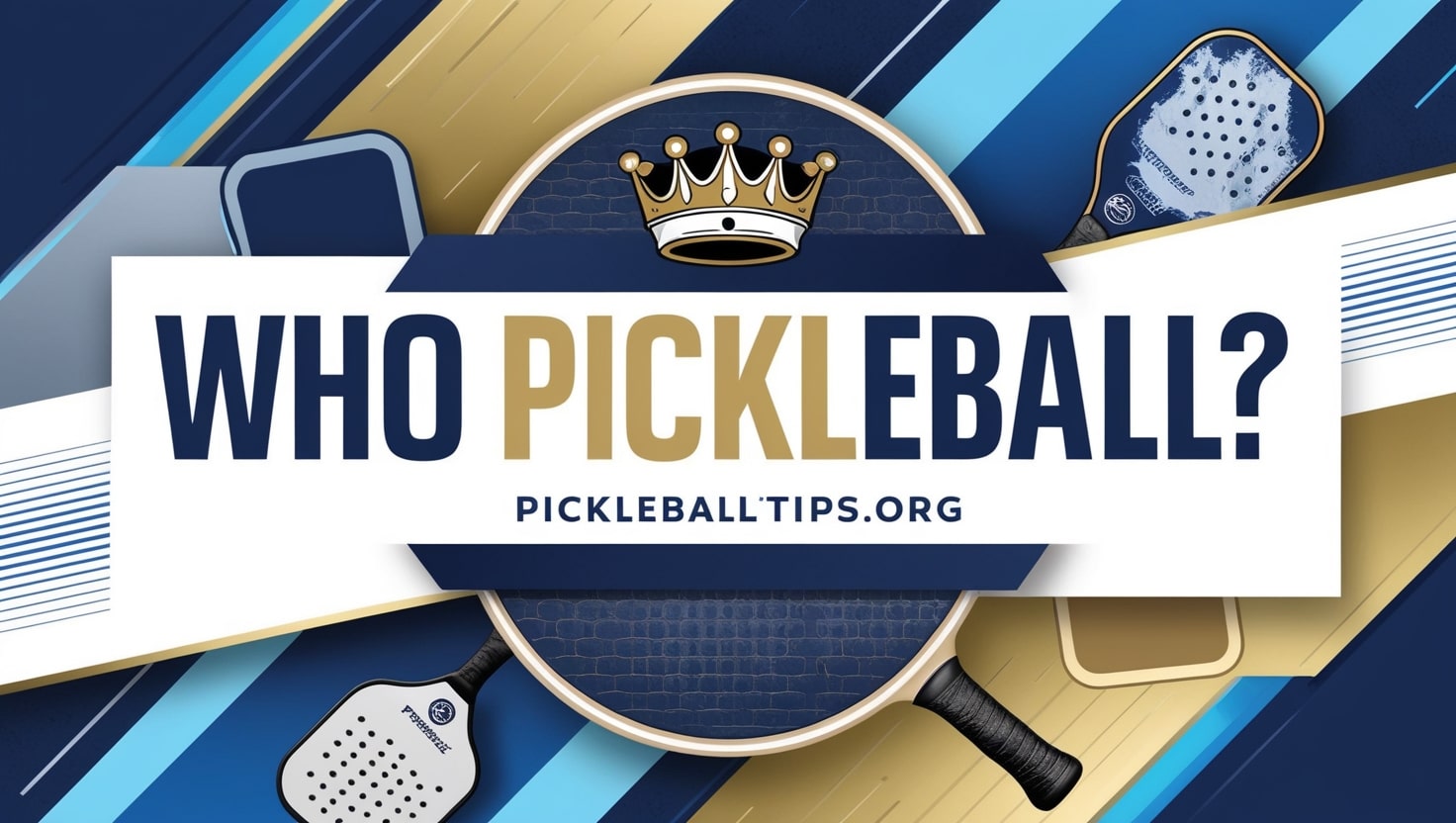Pickleball, a sport that combines elements of tennis, badminton, and ping-pong, has surged in popularity across the globe in recent years. As courts spring up in neighborhoods, parks, and sports complexes, enthusiasts of all ages have embraced this engaging and accessible game. But amidst this meteoric rise, one question lingers: who owns pickleball? Let’s explore the ownership, evolution, and governance of this beloved sport.
The Origin of Pickleball

>>> See More: How Pickleball is Played: A Comprehensive Guide
Pickleball was invented in 1965 on Bainbridge Island, Washington, by three friends: Joel Pritchard, Bill Bell, and Barney McCallum. The trio initially designed the game as a way to entertain their families. Armed with table tennis paddles and a perforated plastic ball, they improvised rules to suit a badminton-sized court.
Despite its informal beginnings, the sport quickly gained traction. Families and communities began adopting it, leading to the creation of a standard set of rules. As pickleball grew, so did its need for formalized structures to support and regulate the sport.
The Governance of Pickleball
USA Pickleball Association (USAPA)
The sport’s first governing body, the USA Pickleball Association (USAPA), was established in 1984 to promote pickleball and standardize its rules. USAPA later rebranded to USA Pickleball in 2020 to reflect the sport’s growing international appeal.
USA Pickleball doesn’t “own” pickleball in the traditional sense. Instead, it oversees the sport’s regulations in the U.S., promotes player development, and organizes tournaments. With more than 68,000 registered members, USA Pickleball is a cornerstone of the sport’s community.
The International Federation of Pickleball (IFP)
As pickleball expanded globally, the International Federation of Pickleball (IFP) was formed in 2010 to unify the sport’s international growth. The IFP is responsible for governing pickleball on a worldwide scale, managing rules, and fostering collaboration among member nations.
Who Owns the Rights to Pickleball?
The short answer is that no single entity owns pickleball outright. The sport is a collective effort managed by various organizations and stakeholders worldwide. However, there are aspects of the sport that involve intellectual property and trademarks:
- Trademarks
The name “pickleball” and related logos have been trademarked by individuals and organizations over the years. For example, the Pritchard family played a significant role in securing these trademarks to preserve the sport’s heritage and ensure it remains accessible to all. - Equipment Manufacturers
Leading brands like Selkirk, Paddletek, and Onix produce paddles, balls, and nets, contributing to the sport’s commercialization. While these companies don’t “own” pickleball, their innovations influence the game’s accessibility and appeal. - Professional Leagues
The rise of professional leagues like the Professional Pickleball Association (PPA) and the Major League Pickleball (MLP) has added a competitive dimension to the sport. These leagues own their events, branding, and intellectual properties related to their tournaments.
Pickleball’s Financial Ownership Landscape
As pickleball has grown, so has its financial ecosystem. Companies and investors have increasingly poured resources into the sport:
- Corporate Investments
Pickleball has attracted major sponsors, including sports apparel companies like Nike and Adidas, and lifestyle brands targeting active demographics. - Celebrity Endorsements
Stars like LeBron James and Drew Brees have invested in pickleball, bringing both attention and funding to professional leagues. These investments highlight pickleball’s transition from a recreational pastime to a high-stakes competitive sport. - Franchise Ownership
Major League Pickleball has adopted a franchise model, with investors buying teams to compete in professional circuits. This model mimics traditional sports leagues like the NBA or NFL, creating opportunities for significant economic growth.
How Pickleball Is Sustained
Although no one “owns” pickleball outright, the sport thrives because of collective ownership by players, clubs, and governing bodies. Several factors contribute to its sustainability:
- Grassroots Movements
Local pickleball clubs are integral to the sport’s growth. Volunteers often organize events, maintain courts, and introduce new players to the game. - Tournaments and Competitions
Events like the US Open Pickleball Championships and the Pickleball Nationals not only showcase the best talent but also generate revenue for reinvestment into the sport. - Community Engagement
The inclusive and social nature of pickleball ensures it remains accessible to people of all ages and skill levels, fostering a sense of belonging among players.
Why Pickleball’s Ownership Matters
Understanding who owns pickleball reveals how the sport has avoided monopolization. Unlike some sports where a single organization or entity has complete control, pickleball’s decentralized ownership has allowed it to remain dynamic and adaptive. This model ensures that players at every level—whether recreational or professional—have a say in the sport’s evolution.
The Future of Pickleball Ownership
As pickleball continues to grow, questions about its ownership and governance will become increasingly significant. Key challenges include:
- Balancing commercialization with grassroots growth.
- Ensuring accessibility while professional leagues and franchises expand.
- Maintaining international unity as the sport spreads to new regions.
Despite these challenges, pickleball’s unique history and community-driven approach suggest it is well-positioned for continued success.
Conclusion
In essence, no single entity owns pickleball; it is a collective effort involving players, governing bodies, investors, and manufacturers. This shared responsibility has enabled pickleball to thrive and evolve into the global phenomenon it is today.
Thank you for reading this article on pickleballtips.org! Your enthusiasm and support help keep the spirit of pickleball alive. We look forward to sharing more tips, insights, and stories about the sport we all love.
